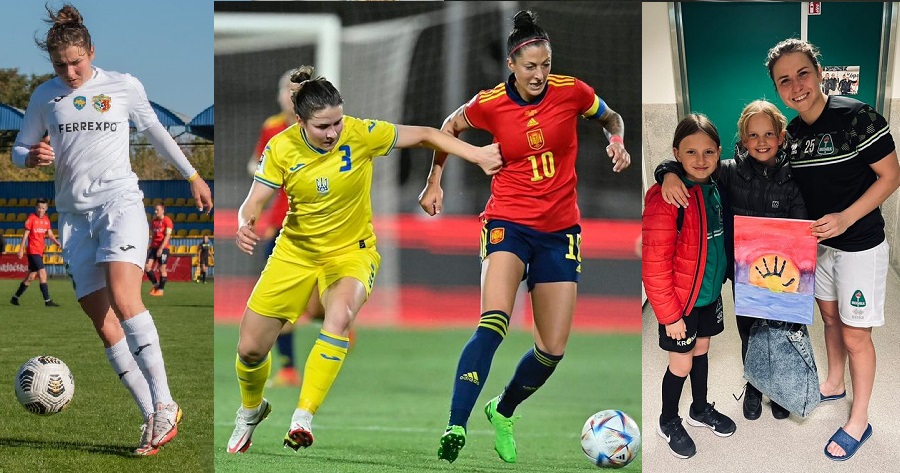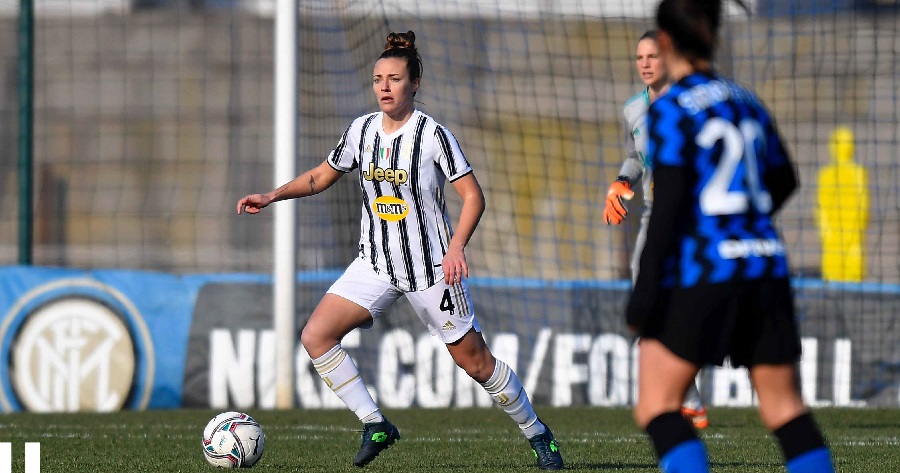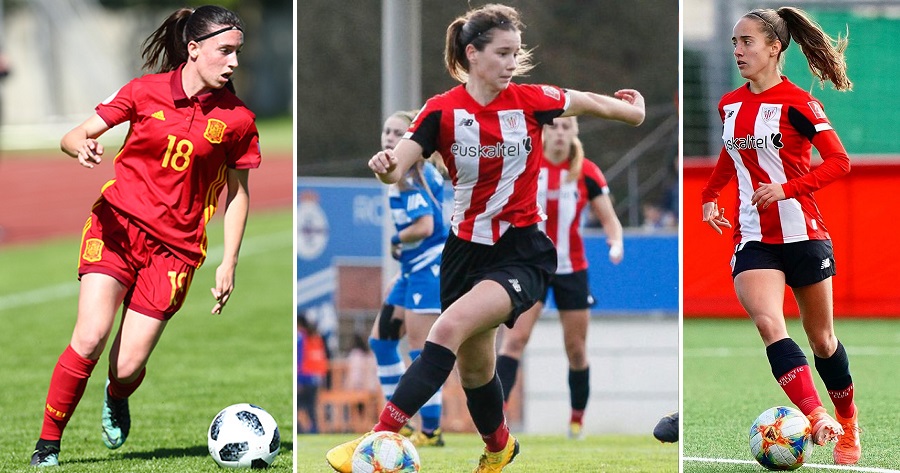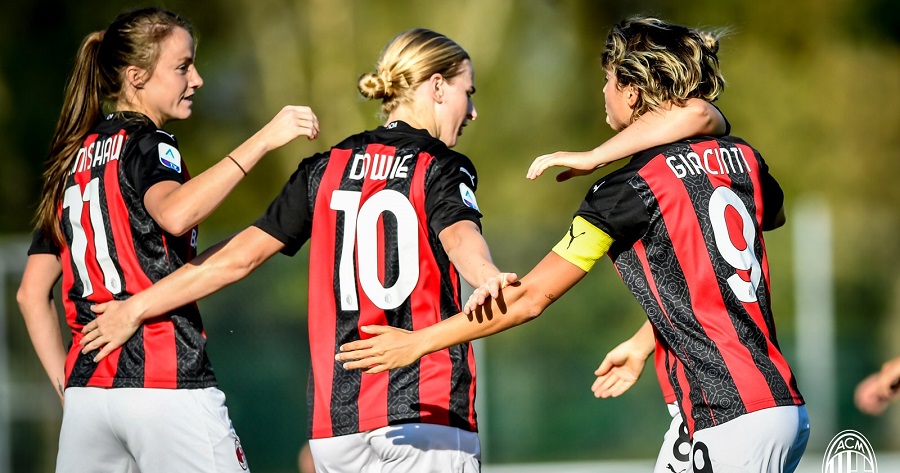On 22nd february 2022, Ukrainian National women football team win the Turkish Women’s Cup. Anna Petryk, midfielder born in 1997, comes back home with a flight to Kiev on 23rd february. Everyone is really excited for the winning. Once in Kiev, Anna takes a train to Kharkiv, where she plays for WFC Zhytlobud-1, the most winning club of the country. On 24th February Russia invades Ukraine. During the first months of the war, Anna moves to Iceland to play for Breiðablik, a team that Zhytlobud-1 have faced and beaten in the Champions League group stage. Despite the war, however, football did not stop in Ukraine and Anna is now back in Kharkiv where she plays for Vorskla Poltava.
Last season you were playing for the Kharkiv football team and then you moved to Breiðablik. Was it your choice to move to the Iceland football championship or were you forced to move by the actual situation in your country?
“I didn’t want to change my team, but the situation made me. Russia invaded Ukraine, Kharkiv and other cities. We didn’t know if it would be possible for us to play in Ukraine and do what we like. We decided to play in other countries because we have to earn for ourselves, our parents, families and get better at football.”

Breiðablik was also one of your opponents in the group stage of UEFA Women’s Champions League. How was your experience there?
“When I got to know I could play for Breiðablik, I was very surprised. I remembered that team from the Champions League, that’s why I decided to play there. Breiðablik has high goals, they try to improve every day and it’s amazing. It was a wonderful experience there, I didn’t regret choosing Breiðablik, it’s a great team. I’m really very grateful to them.”

Now you are back in the Ukrainian championship. How is your football season going?
“Before going back to Ukraine I was stressed, I didn’t know how to play when there’s so much stress and anxiety in your country, you go to the shelter and you don’t know how long you will wait. You have to stay there and then when the air raid siren goes off you have to play again. It was so strange for me but now it’s real football in Ukraine. I’m grateful to the armed forces of Ukraine that we keep playing here. I needed to go back to Ukraine because I wanted to help my family.”
Did you expect what happened last year in Ukraine? In the months before the conflict started, did you prepare in some ways to face the situation as a team?
“There were a lot of talks that Russia might attack us, but who could believe that in the 21st century someone can so openly kill thousands of people, torture, rape and at that time remain unpunished for such things. Everyone was sure that this was a policy of intimidation and that Russia wouldn’t dare to do this, but unfortunately, the neighboring country started committing genocide in Ukraine.”
“I can’t speak for all Ukrainians but I can see and I am rejoicing that my nation tries to continue to live. Those few months are very changing for my life, for my family and friends. People live one day at a time. Nobody knows what may happen tomorrow or the day after tomorrow. We’re trying to live today and enjoy this one day.”
How did the Ukrainian championship manage to be played in this kind of situation?
“I have mixed feelings. I’m very happy I can play football in Ukraine even though the war is going on. But it’s very terrible when we are playing football and we hear the air raid siren and we have to go to the shelter and wait. We can wait twenty minutes or one or even two hours.”

In the past year you were also part of the national team who played the world cup qualification matches. Some of the matches were played in 2021, before Russian invasion, and some others, like the one against Scotland and Hungary, were played in June when your country was already at war. How did you keep in touch with your teammate in the meanwhile?
“We played against Scotland and Hungary in June. It was the fourth month of the war. When the war started we tried to find a team and after that we tried to adapt in the team then we tried not to think about terrible things in Ukraine. We tried to concentrate on football because we knew we had two official games for the National team and it was very important for us and our country. We wanted to play in Ukraine but it was impossible, we couldn’t play at home, we couldn’t play in Ukraine. Everyone knew it was important as never. When we met each other for the first time after the war had started we thought more about the armed forces of Ukraine, Ukrainian people, about victims of war and a little bit about football. We thought more about the news around us than about football. We tried to be strong.”

Players always talk about the pride they feel wearing the national team shirt. Did your perception of the importance of that shirt change for you before and after the beginning of the conflict?
“Wearing a Ukrainian T-shirt and singing the anthem of Ukraine was always important for me. After February 24th it became even more important. I’m very proud that I’m Ukrainian, proud to be a part of this strong and brave Nation.”

In the last season you were also playing in the Uefa Women’s Champions League at group stage facing teams like Real Madrid and PSG. How was it for you to play in such an important tournament?
“I played with team from Kharkiv – «Zhutlobud-1». It was wonderful, it was amazing, it was fantastic. It was my dream. I always think about my football skills and want to improve it and play better every day. I think it’s normal things of every athlete. When we played against Real Madrid and PSG I felt their high level during the match. They are faster, they are stronger, they think quickly. We lost four games but we became stronger and gained experience.”

How do Ukrainian teams manage to train and travel around Europe to play in the tournament this year?
“This year it’s very hard. I think nobody understands it. This year, the Vorskla team represented Ukraine in the Champions League and it was difficult because Vorskla didn’t play in Ukraine. They went into another country and played a home match, then stayed there, training and playing their away match. Also when we had the National camp we first went to Poland and had a flight from there. We spent a lot of time for traveling.”

When people talk about women’s football, they always refer to a community of people, due to the common goals that this sport is trying to reach as a movement. Did you feel like UEFA and other european teams were supportive with the situation that football teams in your country had to face?
“Yes, I did. The transfer window for Ukrainians has been extended and some restrictions have been lifted so that we can play freely in other countries. Also, the European teams that signed contracts with Ukrainian women did their best. For example, the club Breidablik that I joined, helped me a lot in difficult times, maybe it’s just that Icelanders are very good people, I don’t know if I can compare to other clubs.”

Did you think that as an athlete you have some responsibility to share what is happening now in your Country?
“Of course I did. First of all, I share this pain as Ukrainians and then as an athlete. I want to support my country in the football arena as well. I think this is our battlefield. I can and want to announce on my field that our neighboring country is a terrorist country. I feel responsible that I should not be silent about what is happening in my country. I have to call a spade a spade and proclaim that Russia is a terrorist country, that Russia invaded Ukraine and is killing my nation every day. I want to do this so that I am not ashamed to look my ancestors in the eyes. If I can tell the truth that way, I will. I cannot sit quietly and wait for peace. I don’t want peace, I want the terrorist country to leave my country and never come here again.”
Giulia Beghini
© RIPRODUZIONE RISERVATA





